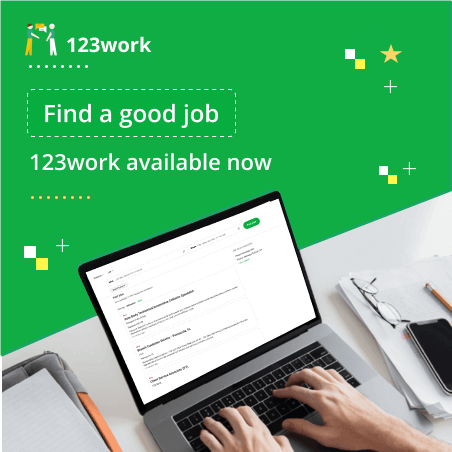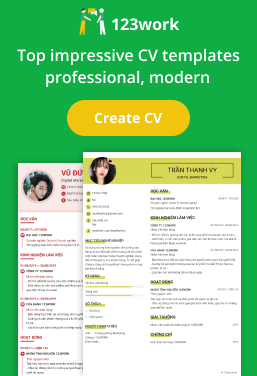Department:
36905 Advocate South Suburban Hospital - Cardiovascular Diagnostics
Status:
Part time
Benefits Eligible:
Yes
Hours Per Week:
20
Schedule Details/Additional Information:
Every other week: Week 1- Tuesday and Thursday Week 2- Monday Wednesday and Saturday 6a-230p
Schedule to vary with needs of department.
Major Responsibilities:
Education/Experience Required:
Knowledge, Skills & Abilities Required:
Physicial Requirements and Working Conditions:
36905 Advocate South Suburban Hospital - Cardiovascular Diagnostics
Status:
Part time
Benefits Eligible:
Yes
Hours Per Week:
20
Schedule Details/Additional Information:
Every other week: Week 1- Tuesday and Thursday Week 2- Monday Wednesday and Saturday 6a-230p
Schedule to vary with needs of department.
Major Responsibilities:
- Electrocardiograms and Rhythm Strips: Preps and obtains quality diagnostic Electrocardiograms (EKGs/ECGs) and Rhythm Strips with knowledge of proper lead placement and technique on routine and stat testing.
- 1)) Demonstrates knowledge of life threatening arrhythmias, heart blocks, ischemia, infarctions and provides preliminary readings to nursing units of results that need immediate attention, as well as determining abnormalities on out patients prior to leaving the department and hospital.
- 2)Obtains prompt reading of EKGs/Rhythm Strip by cardiologist on stats, surgicals, and abnormal tests whenever possible. If cardiologist is not available or after hours, the house physician and/or emergency physician can preliminarily interpret the EKG/Rhythm Strips.
- 3)Provides reading cardiologist serial comparison (the most previous EKG) whenever patient has had EKGs in the past at this hospital. Previous EKGs are stored either in the EKG Management System or in microfilm cassettes.
- 4)Demonstrates knowledge of EKG equipment including configuring, functionality, downloading, transmitting, retrieving, and deleting.
- 5)Demonstrates knowledge of how to edit, copy, delete, and retrieve from the EKG management system including simple typing of patient information and results.
- 6)Performs EKGs portably on in-house patients and in Cardiology or various procedure rooms throughout the hospital as assigned
- 7)Prioritizes workload including efficient and prompt handling of out patients and timely routine and stat testing
- 8)Processes appropriate paperwork protocols including handling of requisitions, logging tests in work logs, etc
- 9)Assists in training non-cardiology associates, i.e. emergency associates, respiratory therapists, and PCAs (LPNs) on Telemetry units in proper lead placement, technique, supplies, and equipment functions and maintenance
- 10)Maintains equipment including cleaning, minor repairs to equipment and/or cables, for EKG equipment throughout the hospital and stocking supplies. 11) Informs supervisor when equipment is in need of repairs or problems with equipment and/or accessories
- Performs Signal Averaged Electrocardiograms, also called Late Potential or High Resolution EKGs: Preps and performs test with the specialized equipment utilizing proper lead placement and technique to obtain optimal results. Transfers testing information to the computerized program and runs appropriate tracings
- 1)Completes appropriate worksheet including patient diagnosis, cardiac history, and cardiac medications
- 2)Assembles test results with work sheet and processes appropriate paperwork protocols including handling of requisition, logging tests in work logs, charging for test in H.I.S. computer, etc.
- 3)Demonstrates knowledge of Signal Averaged equipment and computer program, maintains equipment and troubleshoots any problems
- 4)Performs tests portably on in-house patients and in Cardiology or various procedure rooms throughout the hospital
- Holter monitor hookups: Preps and connects leads using proper technique and lead positions, and explains monitor to the patient including the need for the patient to enter into a diary his/her activities, symptoms, and use of the event button
- 1)Prepares supplies and paperwork to connect monitor including examining the equipment and cables, making sure they are clean and intact.
- 2)Performs holter hookups portably on in-house patients and in Cardiology or various procedure rooms throughout the hospital.
- 3)Checks with patient's nurse regarding in-patients to determine if other tests which would interfere need to be completed first i.e.: chest x-rays, tests involving the torso, tests or therapies involving water or bathing therapies, MRI, etc. Also finds out if patient has a pacemaker requiring specialized monitors.
- 4)Explains thoroughly the procedure to the patient and with out patients instructs them regarding when and where to return the monitor and proper removal techniques, if patient prefers to remove monitor and bathe before bringing monitor back.
- 5)Cleans and maintains monitors in good working order by removing sticky residue, cleaning tape heads and moveable parts, and exams cable and wires for possible damage and exchange if necessary.
- 6)Processes appropriate paperwork protocols including handling of requisition, logging tests in work logs, charging for test in H.I.S. computer, etc.
- 7)Informs supervisor when monitors need repair or problems.
- 8)If appropriate, begins to cross-train on holter scanning equipment if capable to demonstrate the necessary competency and knowledge of basic to complex arrhythmias. (Preferably a part-time or full-time technician).
- Cardiovascular Stress Testing (Treadmills): (Preferably a part-time or full-time technician) Preps and connects leads using proper technique and lead positions, and explains procedure thoroughly to the patient including going over information sheet, consent for procedure, how to walk on treadmill when appropriate, what is expected of the patient and goals to be achieved for a diagnostic test, etc. Stress Testing includes: Routine Treadmills, Modified Treadmills, Naughton protocol Treadmills, Bike Stress, Cardiolite/Thallium Treadmill, Medicated Cardiolite/Thallium Stress i.e. Dipyridamole (Persantine), Dobutamine, Adenosine; and possibly assists with Stress Echo with or without Dobutamine
- 1)Demonstrates knowledge of life threatening arrhythmias, heart blocks, ischemia, infarction, injury patterns and notifies cardiologist stat if not in procedure room.
- 2)Obtains patient's cardiac history, other disease modalities, medications, diabetic, allergies, symptoms, cardiac enzymes and MB bands on in-patients and vital signs (blood pressure and heart rate).
- 3)Fills in worksheet with the items in 2) as well completes worksheet with vital signs, symptoms, EKG changes and statistical information on the back of the form throughout the entire procedure denoting any changes in patient's condition or reasons for delays in testing due to personnel issues, etc.
- 4)Obtains informed consent for the procedure and explains what the patient will be doing during the procedure and demonstrates walking on the running board when appropriate.
- 5)Assesses whether the patient is able to comply with the rigorous criteria for walking on the treadmill, and if patient can tolerate the procedure. Obtains permission for medicated stress tests from patient's physician if patient is not able or willing to walk on the treadmill as needed
- 6)Assesses when vital signs, symptoms, heart rate, elevated blood pressure, elevated CPKs, left bundle branch block would preclude the patient from being stressed and inform the cardiologist to find out if test should be done, postponed, changed to other type of stress, or medication would be appropriate Then notifies patient's physician and/or in-patient's RN if test needs to be changed or postponed and get verbal consent for alternate testing.
- 7)Starts the exercise portion of the stress with cardiologist's permission. On non- medicated stress testing, may perform entire procedure alone with the cardiologist available nearby, with or without Nuclear tech in room for Nuclear stress testing.
- 8)Decides when to stop the exercise portion due to reaching target heart rate, patient not able to tolerate exercising further, symptoms, and EKG changes including ST depression/elevation, life threatening arrhythmias and/or blood pressure readings. Whenever possible, consults with cardiologist on concluding the testing, but may need to make the evaluation independently.
- 9)On medicated stress testing will be assisted by the Cardiology Procedure RN in assessing patient with the RN handling the medication dispersing and relieving of symptoms.
- 10)Demonstrates knowledge of the various types of protocols utilized for stress testing. Also learns and retains knowledge of the various stress equipment used during stress testing which includes: EKG monitor system, running boards, automated procedure beds, manual or automatic blood pressure equipment, pulse oximetry, portable or wall mounted oxygen. 11) Wears radiation detection badge when performing Nuclear stress tests and retains knowledge of proper radiation protocols with yearly inservicing. 12) Remains by patient's side during entire procedure and monitors patient's symptoms, vitals, and EKG monitor. 13) Recovers patient by ensuring that symptoms or problems have resolved before the patient leaves the stress lab or alternate plans are made such as admission, notification of patient's physician/nurse of the patient's condition. 14) Transports and/or escorts patient possibly to and from testing area when appropriate and escorts patient to Nuclear Medicine department when further scanning is appropriate. 15) Provides appropriate EKG and Rhythm Strip tracings throughout the entire procedure, including capturing arrhythmias and symptoms events, and compiles a final report on the EKG monitor system to print for review by the cardiologist. 16) Organizes the paperwork and gives to cardiologist for interpretation. 17) Provides reading cardiologist the previous stress test interpretations when available by checking files and microfilm in the department. 18) Prioritizes workload including efficient and prompt handling of out patients and timely testing. Includes notifying out patients of any delays in waiting, getting assistance from associates to assist in prepping or performing simultaneous testing, adjusting schedule to fit cardiologists' requests, etc. 19) Reviews the day before the scheduled tests by checking personally, calling in etc., the times and types of stress testing scheduled and plans to arrive to work at the appropriate time before testing. Also ensures that backup tech is aware of need to assist when testing levels are appropriate. 20) Processes appropriate paperwork protocols including handling of requisition, logging tests in work logs, copying necessary forms, charging for procedures, equipment and supplies, etc. 21) Maintains equipment including cleaning, minor repairs to equipment and/or cables, accessories and stocks supplies in procedure rooms. 22) Checks both crash carts daily (top of cart) including testing the defibrillator and documents on proper form. 23) Demonstrates knowledge of defibrillator functions and crash cart items in case of emergency. 24) Certifies yearly in CPR and other competencies including EKG interpretation. 25) Assists in training of associates on all types of stress testing and protocols. 26) Informs supervisor and/or biomedical when equipment is malfunctioning or needs repair. 27) Completes work in a timely manner, and if not needed for other duties, signs out for the day. Determines appropriate times for breaks or lunch and if necessary asks associates to cover workload at these times. Hours often are flexible with no guarantee start and stop times.
- Cardioversion monitoring: Preps and connects patient to the appropriate lead wires requested to perform Rhythm Strips and EKGs as needed
- 1)Receives notification of time and location of cardioversion and plans workload accordingly
- 2)Performs at least a rhythm strip before and after defibrillation with other optional testing before, during, and after procedure as requested by physician
- 3)Demonstrates knowledge of defibrillators including watching the monitor, running strips, setting up of joules, hands free accessories, etc.
- 4)Demonstrates knowledge of rhythm changes: atrial fibrillation/flutter, sinus rhythm, ventricular fibrillation/flutter etc
- 5)Provides copies of testing for patient's physician (chart) and copies to be interpreted by cardiologist in the Cardiology Department
- 6)Performs testing portably at patient's bedside or other designated areas
- 7)Demonstrates ability as in EKG section (A) above on capabilities of the EKG equipment functionalities
- 8)Processes appropriate paperwork protocols including handling of requisitions, logging tests in work logs, charging for procedures done, etc
Education/Experience Required:
- High school graduate or G.E.D.; successful completion of a Cardiovascular curriculum or hands-on learning experience. Minimum of 1-2 yrs experience and/or clinical internship in basic EKG interpretation and cardiac testing.
Knowledge, Skills & Abilities Required:
- Possess basic knowledge of life-threatening EKG abnormalities and arrhythmias. Ability to perform good quality with proper lead placement EKGs, and preferably perform other procedures including stress testing in a clinical or hospital setting. Minimal typing, computer, and clerical skills.
- Eligible to take certification for CT exam.
Physicial Requirements and Working Conditions:
- Excellent communication skills. Ability to think independently and handle emergent situations. Ability to perform lifting activities pertaining to patients. Ability to endure long periods of standing and walking. Promotes an understanding of age specific needs in the explanation and performance expectations of the test/procedure (Ages 0 - 70+). Experience in a hospital-type environment preferred. Ability to move from different tasks and jobs easily while assuring each is done competently and completely. This position can recognize needs and behaviors of all age groups. Evidence of this can be shown by recognizing levels of development and modifying approach and exhibiting communication skills necessary to interpret age specific responses.
- If position has direct patient care or direct patient contact the following lifting requirement supersedes any previous lifting requirement effective 06/01/2015. Ability to lift up to 35 pounds without assistance. For patient lifts of over 35 pounds, or when patient is unable to assist with the lift, patient handling equipment is expected to be used, with at least one other associate, when available. Unique patient lifting/movement situations will be assessed on a case-by-case basis.


